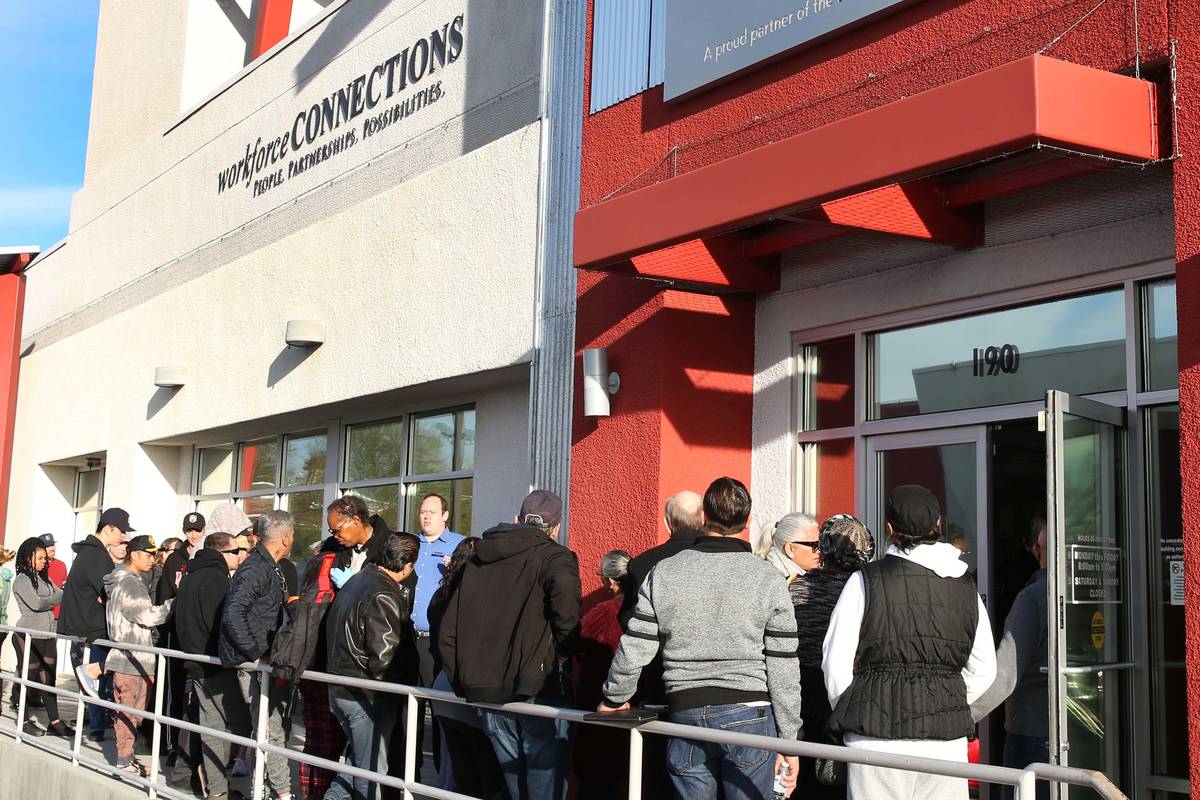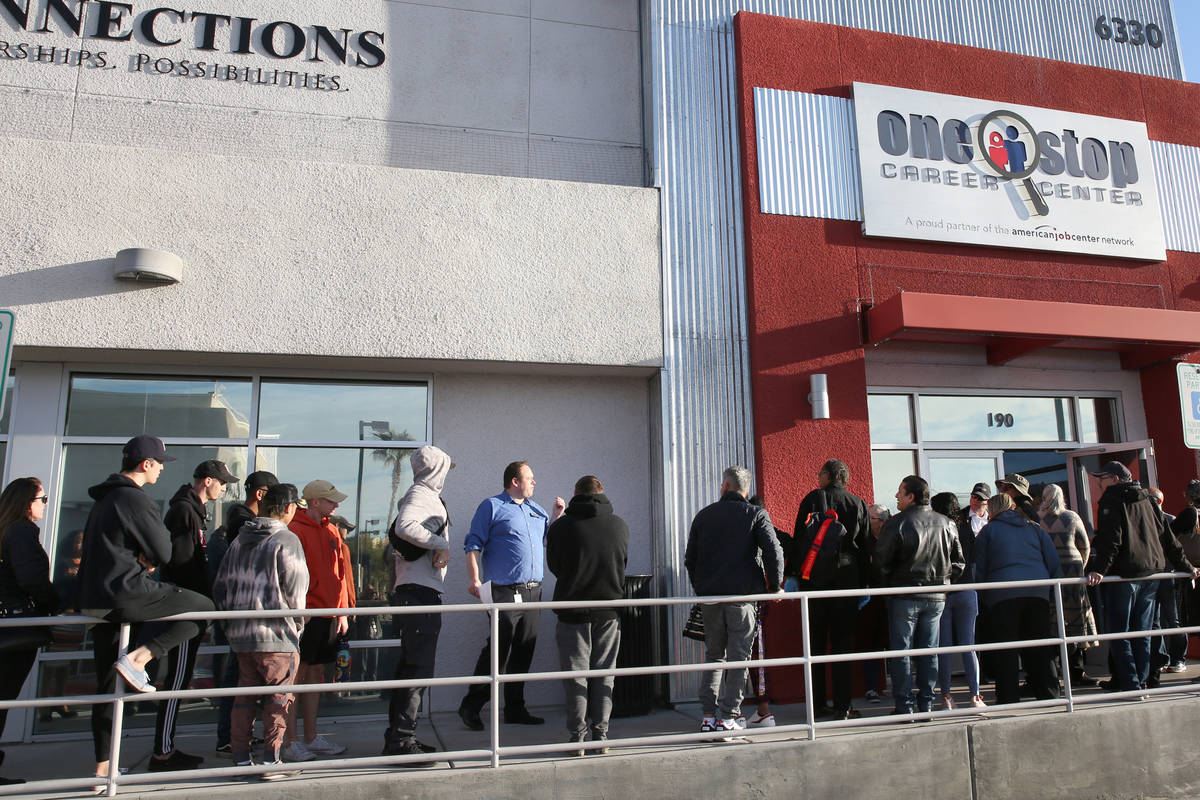Jobless Nevadans now must complete work search requirements to get aid
Looking for work, or enrolling in job training, will now be a requirement for jobless Nevadans to receive unemployment benefits.
On Thursday, the state Department of Employment, Training and Rehabilitation released new guidance and information on what claimants — in both the regular Unemployment Insurance and the Pandemic Unemployment Assistance programs — will need to do to receive jobless aid.
At the onset of the pandemic, Gov. Steve Sisolak waived work search requirements as the pandemic-induced shutdowns forced tens of thousands of Nevadans out of work.
A year later, many employers across the state are seeking workers as the local economy reopens: In some cases, local companies are having trouble filling jobs across different sectors. For those looking to dine out, the labor shortage could mean longer wait times at favorite restaurants.
The reinstatement of the work search requirement comes as the number of COVID-19 cases continues to drop and Nevadans are getting vaccinations at record numbers. The state is also aiming to return to full capacityJune 1.
State workforce leaders say it is crucial for Nevadans to get back to work, whether returning to their pre-pandemic job or training for a new one.
“By September the COVID expanded unemployment benefits will expire, and it’s critical that we set claimants up for success by offering access to open positions in many industries, or training for a new career,” DETR Director Elisa Cafferata said in a Thursday news release.
DETR said its UI program offers temporary, partial wage replacement and is “designed to be a bridge to a return to meaningful work.” The requirement must be a “good faith” effort, DETR said, to find work.
Starting Sunday, claimants will need to keep records that they are actively looking for work or participating in an approved training program.
The agency said some activities that count toward the requirements include logging into the EmployNV website to search for jobs in its database with approximately 40,000 open positions. DETR said that since PUA and UI recipients are already using the platform, there’s no need to create a new account.
Jobless Nevadans could also build or update a resume, apply to an open job posting, use networking tools such as LinkedIn or job boards to find potential employers. Filers could also participate in a virtual job networking event.
PUA claimants could update their profiles by logging in to a gig work platform. PUA filers can print the Work Search Activity Record available at ui.nv.gov under the tab “For UI Claimants” to track their work search tasks. Weekly records must be available upon request. Failure to provide weekly records may result in delay or denial of benefits, DETR said.
Out-of-state filers will be required to register for employment services in their state “until further notice,” DETR said.
There is a waiver for union workers: The claimant must be a member, in good standing, of a union with a hiring hall. The filer will need to provide the union name and union dues expiration date.
Filers can find more information at EmployNV.gov.
DETR said it has created a database of short-term training programs that can be completed by September, when the additional federal unemployment assistance is set to expire. For current unemployment claimants, the training can be free and counts toward the work search requirements.
Some of the training includes high-demand jobs from the medical field to truck driving. The workshops can last a few days, and certificate programs can take several months. Filers can find more information on registering for these programs through Nevadaworks in Northern Nevada and Workforce Connections in Southern Nevada.
Contact Jonathan Ng at jng@reviewjournal.com. Follow @ByJonathanNg on Twitter.

















































